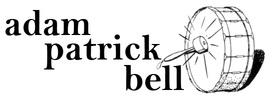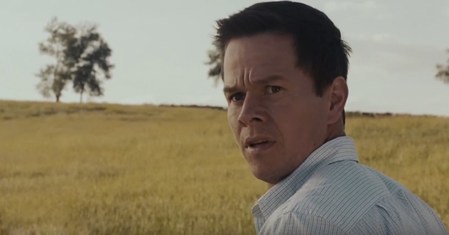Any student that takes a class with me involving music technology is required to maintain a blog, and they're graded for doing it. In short, they're assessed on assessing themselves. When I initially present this ongoing assignment to my students I tend to field the same concerns and questions, so I finally wrote my down my responses as a brief guide.
the learning (b)log
Reflection is a critical aspect of learning. To facilitate this process, every week we will individually answer the question, “how's my learning?” in our respective learning (b)logs (That’s a silent “b” in case you’re wondering). I recommend using either Tumblr or Wordpress because previous students have told me they're easy to use, but any platform that you can update and provide a link to is acceptable.
Q: Why am I doing this in the first place?
the learning (b)log
Reflection is a critical aspect of learning. To facilitate this process, every week we will individually answer the question, “how's my learning?” in our respective learning (b)logs (That’s a silent “b” in case you’re wondering). I recommend using either Tumblr or Wordpress because previous students have told me they're easy to use, but any platform that you can update and provide a link to is acceptable.
Q: Why am I doing this in the first place?
A: First, we can enhance our learning by reflecting on it. In the case of most new learning experiences, this becomes apparent really fast. One day you'll be confused, and another day it will make sense, and this can happen without looking at a screen because it's about the bigger concepts, not the clicks, key commands, code, etc. Most of that knowledge can be retrieved from google in seconds, but concepts, especially the new ones you create, are much more complex and therefore can take some time to grasp. Can you do this without a blog? You bet, but there's no way for me to know this unless you communicate it to me.
Second, you need to learn how to learn. Circular concept, yes, but true nonetheless. Having to do a weekly blog gets you in the habit of reflection and hopefully this becomes automatic for you eventually. Just as you practice your instrument, you need to practice learning how to learn. This will become increasingly critical as your life gets busier (it will trust me!) and therefore you need to become more efficient and focused in your learning.
Third, Paulo Friere, known for his critical pedagogy, specifically for his book Pedagogy of the Oppressed (super easy to find a free pdf online), wrote that learners must take agency for themselves. He has this great analogy of the didactic approach to teaching as a banking model. His point was that learners aren't these empty vessels you fill up with knowledge. Learners must have a voice in their own learning process. We'll have lots of discussions in class, but the blog provides another kind of voice for you because it's a different medium.
Fourth, this helps me a lot, and therefore should help you a lot. This relates to the aforementioned point, I'm not here to drop some knowledge on you in a prepackaged way. I'm here to bend to your various wills. It may not be graceful, but following a prescribed formula will undoubtedly lead to formulaic music and that's not what we signed up for.
Fifth, this helps your peers a lot, and your peers will help you a lot. These learning (b)logs are shared amongst the class, and by reading each other's blogs we can learn from and help each other.
Sixth, at the end of the semester you won't need to take my word for it that you've learned a lot because you'll have created your own easy-to-follow trail of evidence, hence the name: learning (b)log.
Q: What do I have to do?
Second, you need to learn how to learn. Circular concept, yes, but true nonetheless. Having to do a weekly blog gets you in the habit of reflection and hopefully this becomes automatic for you eventually. Just as you practice your instrument, you need to practice learning how to learn. This will become increasingly critical as your life gets busier (it will trust me!) and therefore you need to become more efficient and focused in your learning.
Third, Paulo Friere, known for his critical pedagogy, specifically for his book Pedagogy of the Oppressed (super easy to find a free pdf online), wrote that learners must take agency for themselves. He has this great analogy of the didactic approach to teaching as a banking model. His point was that learners aren't these empty vessels you fill up with knowledge. Learners must have a voice in their own learning process. We'll have lots of discussions in class, but the blog provides another kind of voice for you because it's a different medium.
Fourth, this helps me a lot, and therefore should help you a lot. This relates to the aforementioned point, I'm not here to drop some knowledge on you in a prepackaged way. I'm here to bend to your various wills. It may not be graceful, but following a prescribed formula will undoubtedly lead to formulaic music and that's not what we signed up for.
Fifth, this helps your peers a lot, and your peers will help you a lot. These learning (b)logs are shared amongst the class, and by reading each other's blogs we can learn from and help each other.
Sixth, at the end of the semester you won't need to take my word for it that you've learned a lot because you'll have created your own easy-to-follow trail of evidence, hence the name: learning (b)log.
Q: What do I have to do?
1. Write in the neighborhood of 300 words (min. 250, no maximum). Why specify length? I've found in the past with other students that it's extremely difficult to articulate one's thought processes with meaningful depth in fewer words. I've arrived at this number through trial-and-error, and it's sufficient to satisfy "thick description." What is that you say? Ah, our next point...
2. Thick Description.
The thick description has the following features: (A) it gives the context of an action, (B) it states the intentions and meanings that organize the action, (C) it traces the evolution and development of the action, and (D) it presents the action as a text that can be interpreted. A thin description simply reports facts, independent of intentions or the circumstances that surround action. (Norman Denzin, 2001).
The point is to contextualize what you're thinking about. Writing that "this is difficult," is a start, but it's not going to help you or me if we don't unpack that and try to specify why.
3. What are you working on? This shouldn't be too difficult to do. Simply describe the assignment you are currently working on.
4. What problems have you encountered?
With regard to what you wrote about in your description, write about what's making you do this:
2. Thick Description.
The thick description has the following features: (A) it gives the context of an action, (B) it states the intentions and meanings that organize the action, (C) it traces the evolution and development of the action, and (D) it presents the action as a text that can be interpreted. A thin description simply reports facts, independent of intentions or the circumstances that surround action. (Norman Denzin, 2001).
The point is to contextualize what you're thinking about. Writing that "this is difficult," is a start, but it's not going to help you or me if we don't unpack that and try to specify why.
3. What are you working on? This shouldn't be too difficult to do. Simply describe the assignment you are currently working on.
4. What problems have you encountered?
With regard to what you wrote about in your description, write about what's making you do this:
5. What successes have you had?
It's not all bad though, right? Even when it seems like your project is problematic, we need to try to focus on the positives, specifically the concepts that are realizable. Often the issue is not with the concept itself you're trying to realize, it's making it work with the technology you're using. What we're trying to do is problem solve how to get there step-by-step, and some of those steps will be missteps. Account for your steps, which ones do you think are good? Are parts of your approach working? Great, write about it. Feel free to upload works in progress or take screen shots if it helps to explain your progress.
It's not all bad though, right? Even when it seems like your project is problematic, we need to try to focus on the positives, specifically the concepts that are realizable. Often the issue is not with the concept itself you're trying to realize, it's making it work with the technology you're using. What we're trying to do is problem solve how to get there step-by-step, and some of those steps will be missteps. Account for your steps, which ones do you think are good? Are parts of your approach working? Great, write about it. Feel free to upload works in progress or take screen shots if it helps to explain your progress.
Concern: I don't want my learning (b)log to be public.
A: The lo-tech solution is give yourself a pseudonym. I suggest Mark Wahlberg. If a private blog is really what you're after, both Wordpress and Tumblr provide ways of doing this.
Wordpress:
https://en.support.wordpress.com/settings/privacy-settings/
Tumblr:
https://www.tumblr.com/docs/en/blog_management
That said, learning (b)logs are meant to be shared amongst the class so that we can see what others are working on and learn with and from them. The learning (b)log is not intended to serve as a personal journal, so there's no need to include information you consider to be private and/or confidential.
Tip for Teachers: Give a weekly prompt. Those new to blogging often remark that they simply forget to do it. I've found that sending out a message to the class to remind them what we have worked on and providing a few possible points to ponder helps them to keep at it.
A: The lo-tech solution is give yourself a pseudonym. I suggest Mark Wahlberg. If a private blog is really what you're after, both Wordpress and Tumblr provide ways of doing this.
Wordpress:
https://en.support.wordpress.com/settings/privacy-settings/
Tumblr:
https://www.tumblr.com/docs/en/blog_management
That said, learning (b)logs are meant to be shared amongst the class so that we can see what others are working on and learn with and from them. The learning (b)log is not intended to serve as a personal journal, so there's no need to include information you consider to be private and/or confidential.
Tip for Teachers: Give a weekly prompt. Those new to blogging often remark that they simply forget to do it. I've found that sending out a message to the class to remind them what we have worked on and providing a few possible points to ponder helps them to keep at it.





 RSS Feed
RSS Feed